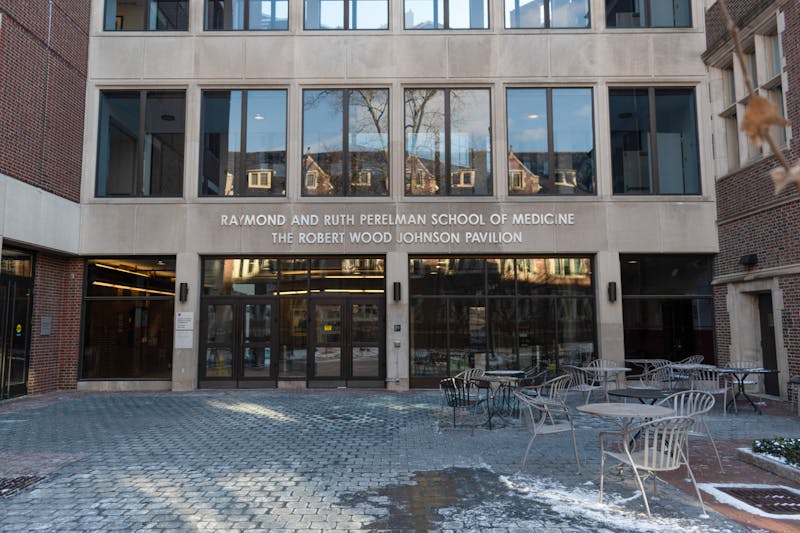Next year, Indian executives hoping to get a Wharton education will not have to travel far from home.
The Wharton School announced last week that its Accelerated Development Program, which offers a business certificate for executive students — college graduates with existing business experience — will find a new home in India starting January 2012.
Vice Dean of Executive Education Jason Wingard believes that Wharton is in a position to offer research and knowledge to help business executives analyze the growing economy in the world’s largest democracy.
Wharton in the subcontinent
The new program will cover topics such as international marketing and global strategic leadership.
To receive the certificate, students will take three courses, one of which can be taken on Wharton’s campus in Philadelphia.
The Accelerated Development Program will be hosted in a five-star hotel in Mumbai. Visiting faculty from Philadelphia will stay in the hotel while they teach.
Instead of offering a wide array of courses, the program will offer a smaller selection of courses taught by experts.
“When you’re flying faculty to India, your design can’t have as much variety,” Wingard said.
“Over here, we offer over 50 programs … what we’re trying to do is to provide an initially smaller menu in India. Over time, we may well increase the number of courses,” Vice Dean for Global Initiatives Harbir Singh said.
Although Wharton currently offers education programs to almost 10,000 executives in Philadelphia and San Francisco, the new program in India will be unique.
Students in Wharton’s existing programs come from all over the world, including India, Wingard said. However, it is important to provide a program in India that is tailored to the market there, he added.
“Some of the topics will overlap with what we deliver here in Philadelphia, but there will be a twist … of what’s unique with doing business in India,” Wingard added.
He hopes that the program will teach students how to be successful in the Indian market and “be prepared to ride this new wave of growth,” he said.
WHARTON AROUND THE WORLD
View Wharton around the world in a larger map
Why India
Choosing to expand executive education to India was a question of taking part in a movement, said 1997 Wharton and Engineering graduate and Wharton professor Saikat Chaudhuri, who has worked with the Indian government in the past.
In the future, Chaudhuri predicts that the “educational ecosystem” of India will grow and become more important globally.
“From the market point of view, it makes sense to have some local presence,” Chaudhuri said, adding that it is important for Wharton to go to the Indian executives.
While creating an undergraduate program would be extremely difficult and raise questions about the Wharton brand, Chaudhuri believes that the Accelerated Development Program will be a more proactive way for Wharton to develop a greater presence in India.
Wharton professor Mike Useem co-authored T_he India Way: How India’s Top Business Leaders Are Revolutionizing Management_ along with Peter Cappelli, Harbir Singh and Jitendra Singh. According to Useem, the “India Way” includes stressing personal engagement in business settings, adaptability of employees and goal-orientation.
“There’s a culture already in India of being an active and informed participant in executive education … [and] the audiences tend to be sophisticated,” Singh added.
“We want to build two-way learning, understanding and appreciation for one another’s traditions and innovations, and there is no better way to do that than in person,” Useem wrote in an email.
Wingard hopes the program will offer “opportunities … to leverage the research that’s being done by our faculty” and have an impact in India.
Expanding internationally
As Wharton expands to India, it is also important to pay attention to emerging markets in China and Brazil, Wingard said.
Currently, faculty research being done at Wharton is “very relevant in those two places,” he said.
The program in India marks a first step in expanding the Wharton education and its brand, he added.
As English is the primary language used among business people in India, language barriers that could pose a challenge in other countries such as China will not be a problem in India.
In the past, Wharton has learned from European and Japanese companies, according to Useem. “Now is the time to learn from [Brazil, China, India, Russia and South Africa] as well,” he added.
“We’re starting to reach out to the high-growth markets, influence them, learn from them. [The program] really is a way for Wharton to [become] a global leader in business education,” Singh said.
“Consider all of this an on-going experiment,” Chaudhuri added.
The Daily Pennsylvanian is an independent, student-run newspaper. Please consider making a donation to support the coverage that shapes the University. Your generosity ensures a future of strong journalism at Penn.
DonatePlease note All comments are eligible for publication in The Daily Pennsylvanian.







